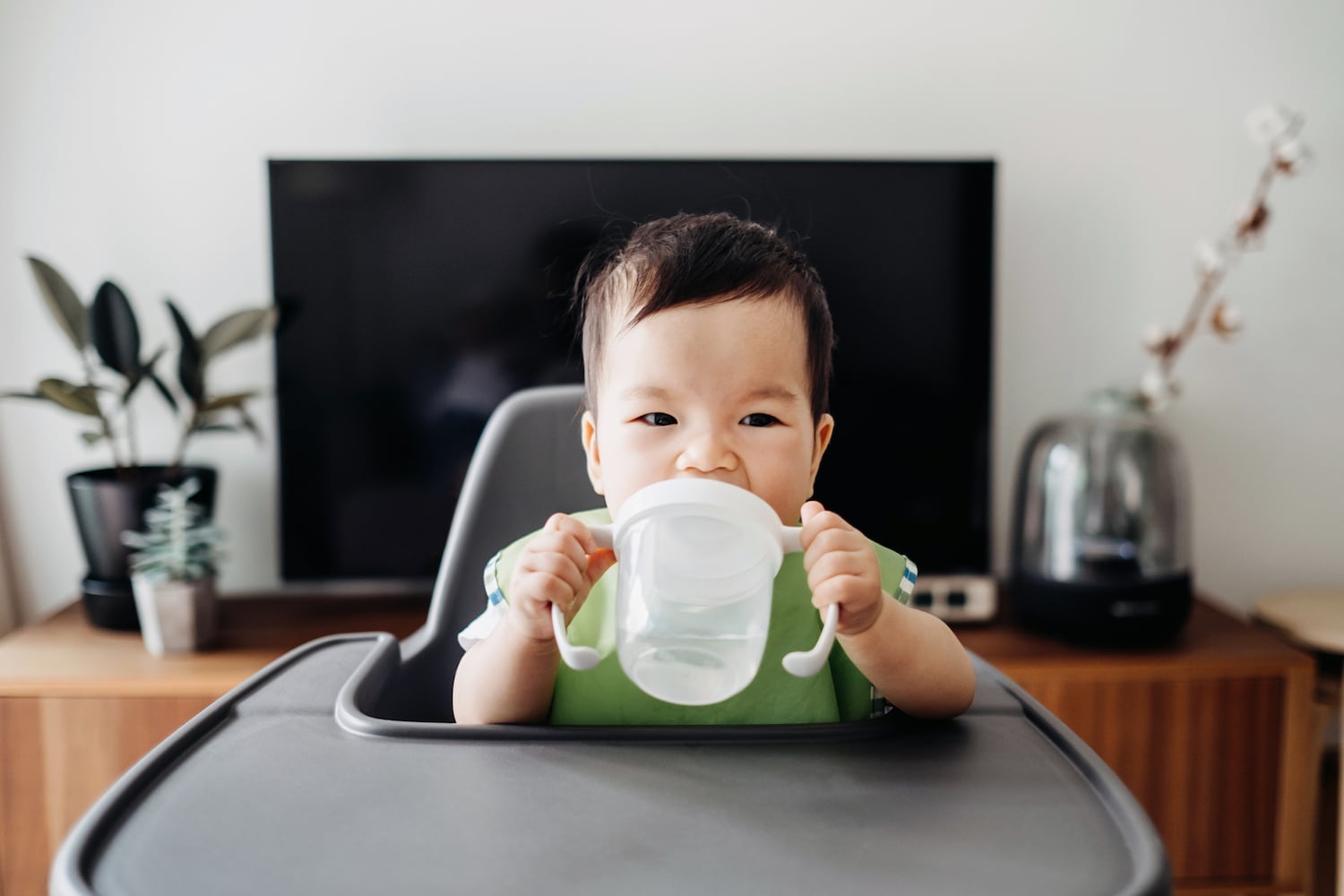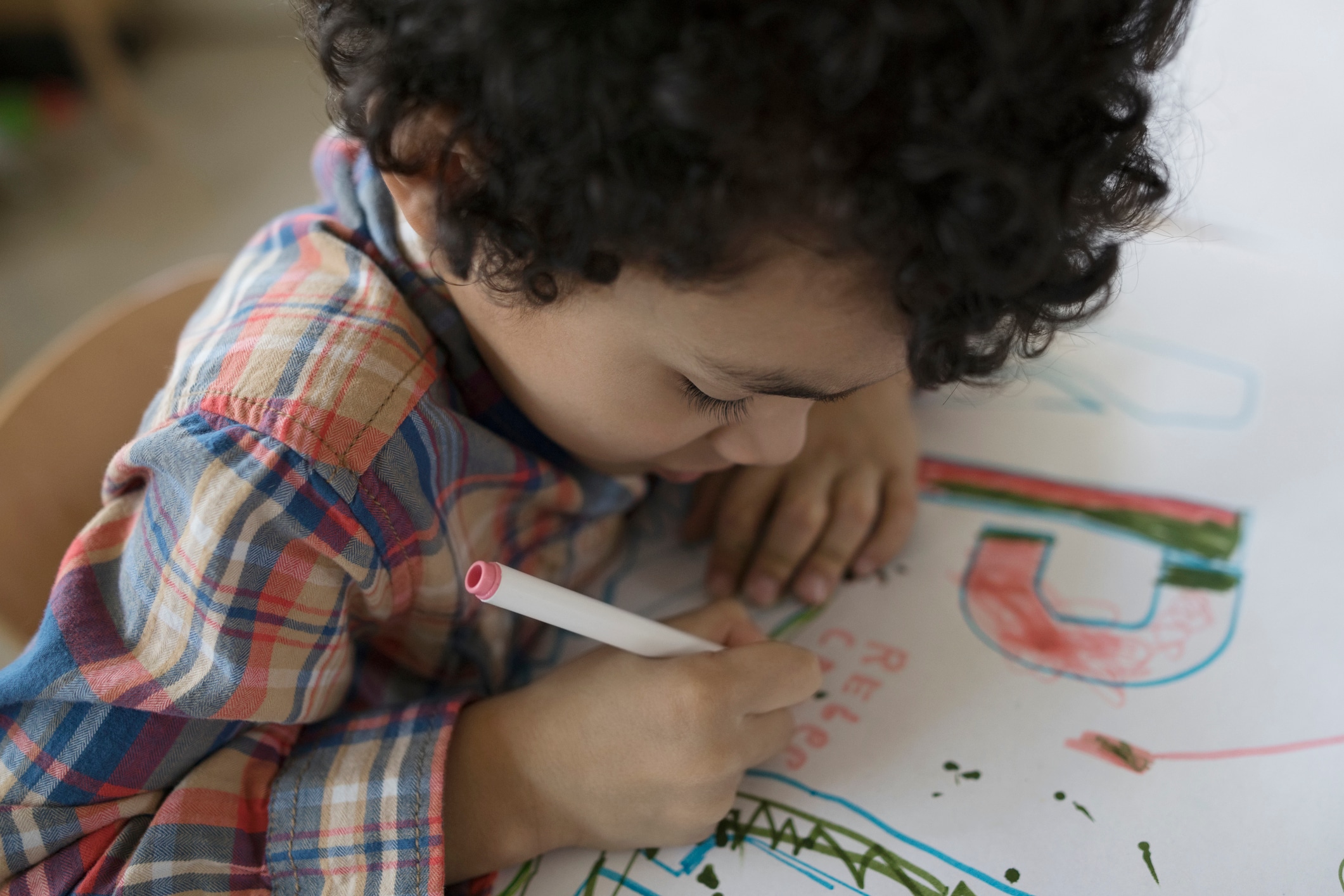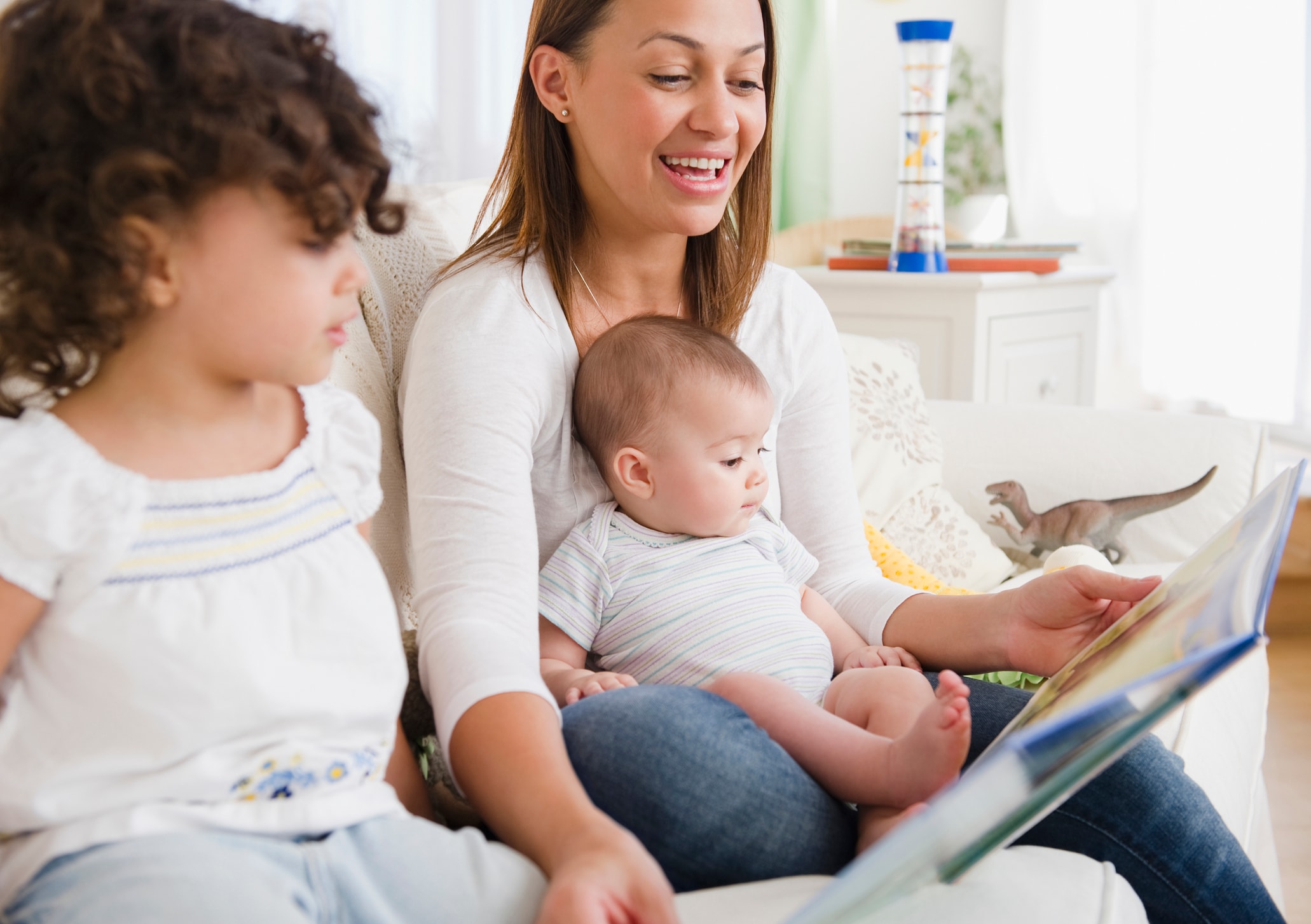Of all the worries parents raising one kid can possibly have, here is one we can definitely release: fear of “only-child syndrome.” It’s not a thing! But thanks to the man who coined the term, 19th-century child psychology expert Granville Stanley Hall, only children have long been labeled with an array of ridiculous stereotypes. You know the ones: unsociable, selfish, inflexible, self-centered. Ever since Hall declared that “being an only child is a disease in itself,” anxieties over growing up sans siblings have carried over from generation to generation.
However, in the late 80s, social psychologists Toni Falbo and Denise Polit poured over decades of research comparing only children to those with siblings, and their findings should have put the myth to rest. Only children may score significantly higher in achievement motivation and personal attainment, these experts found, but in most other respects, they are comparable to children with siblings. And yet, belief in only-child syndrome still lingers in many people’s minds.
So we dug into this myth further to find out if there’s anything that could possibly justify it. Here’s what the experts had to say about the notion of only-child syndrome.
Is only-child syndrome real?
“This idea that being an only child somehow puts you at a disadvantage socially or emotionally, it’s a myth,” says Jennifer Clegg, assistant professor of psychology at Texas State University.
In fact, Clegg adds, Falbo and Polit’s research shows that in terms of key social and emotional skills and developmental milestones, eldest children look a lot like only children. And you don’t hear people stereotyping eldest children as “selfish” and “antisocial.”
According to Clegg, there are a whole range of environmental factors that can affect a child as they develop, and she says, “those things are constantly interacting to eventually shape who you become.” Those variables may include, but are definitely not limited to, being an only child, says Clegg.
Susan Newman, social psychologist and author of “The Case for the Only Child: Your Essential Guide” points out that parents of an only child who happens to be shy and reticent might assume it’s from lack of socialization. But in fact, you can find a similarly shy, reticent child in another family with multiple children, she says.
Does being an only child affect personality?
Like being the eldest or youngest child in a family, being an only child may have an effect on your child’s personality, but this factor plays a relatively small role, Clegg says. More important is the temperament or the personality traits you’re born with, she says.
Newman agrees, “A lot of a child’s personality is baked into the genes.” In fact, many of the traits we attribute to socialization, she says, may have more to do with innate temperament.
Dad Mike Chen, who is raising his 6-year-old daughter in the Bay Area, says, “While our kiddo is certainly strong-willed, that’s inherent to who she is — she’d push the boundaries whether she had siblings or not.” Preschool teachers praised her for being quick to make friends and for showing concern when classmates became upset. A kids’ fitness teacher once told him, “She’s a leader — never let her be a follower.”
“[Only children] are not so unique,” says Dr. Jane Annunziata, a clinical psychologist and psychotherapist in McLean, Virginia. “They’re not so different, and that’s what we’ve learned over the years,” she says.
Is an only child a lonely child?
First of all, the idea that only children are raised alone or in total isolation simply isn’t true, says Clegg. Most only children, like kids with siblings, are going on playdates and enrolling in day care, preschool and beyond and are in social environments for much of their childhood. “All of us tend to be in school by the time we’re 5, which is when you’re getting a lot of social and developmental feedback from being around peers, and that’s really the time for learning how to get along with each other,” Clegg says.
According to Annunziata, only children can experience loneliness, but in her research and experience as a therapist, she’s seen loneliness in kids with siblings as well. “I can’t say that we see more loneliness in kids who don’t have a brother or sister,” she says. You can be surrounded by people and still feel isolated, she adds, because loneliness has more to do with how much trouble you have connecting with peers, how well you cultivate relationships and how connected you are with your community.
Spending time alone is different than being lonely, and it’s not necessarily harmful. Newman says only children are often more comfortable with their own company. She says if your child appears content playing alone, there’s no reason to worry or feel guilty about that.
“Some kids just do better with alone time, just like some adults do better with alone time,” says Clegg. Whether or not your child feels lonely has more to do with their temperament, she explains. Just as many of us who work outside the home come back feeling socially exhausted and needing alone time to decompress, Clegg adds, some kids crave solitude to restore their equilibrium after school, “and that’s OK.” This can also change for any individual in different phases of our lives.
If you’re concerned about unhealthy loneliness, Clegg says, look out for signs that your child is not content with that alone time. “If you’re seeing other red flags, like emotionally or behaviorally, changes in behavior, loss of interest in favorite activities, then that’s the part where you need to worry.” She recommends parents who see signs of depression or anxiety seek help from a mental health professional.
But don’t children need siblings?
Mom of one Sarah M. Anderson never felt like she fit in with the other moms. “That subtle judgment was always lurking,” says the Harlequin romance writer who lives in the rural midwest. “‘Do you only have ‘the one’?’ As if motherhood was an installment in the ‘Highlander’ series.”
Anderson’s pregnancy was physically difficult. “I’m still dealing with residual issues, 16 years on now.” She still recalls the fatigue of caring for a baby and toddler who slept poorly. She did not want to sign up for another difficult pregnancy and more sleepless nights. And yet she couldn’t help wondering if she should give her son a sibling.
“At some point, I realized all the questions I was asking about having a second kid were focused on how it would help my first child,” Anderson says. “That imaginary child was nothing more than a tool to potentially help my son be a better human, not a real person in their own right. And I figured that was a pretty selfish way to go about it, even if that’s how so many people framed it.”
Realizing that helped Anderson release the guilt and the pressure to have more babies.
Newman agrees that parents shouldn’t feel like they have to “give” their child a sibling. “That’s not why you have a baby,” she says. “You have a baby because you and your partner want another child, not because you think you’re doing your child this great service.”
Instead, parents and caregivers can give their children ample opportunities to socialize from an early age. “Today’s parents of only children are far more savvy than they were three decades ago,” says Newman, referring to a time when the only-child-syndrome stereotype was more prominent. “There are so many ways to get your child out with playdates and interacting with other children. That’s enough to overcome hesitancy, the inability to share or any of the negatives we formerly used to place on only children.”
What are the advantages of being an only child?
There are advantages for every family configuration, and onlies are no exception. First of all, raising an only child can be less expensive — and that goes beyond financial. “All your resources — whether it’s time, attention, experiences — are filtered into that child,” says Newman.
Emma Alvarez Gibson of Carson, Nevada says her 15-year-old son “receives all of our best efforts: emotional energy, physical energy, financial support, etc.”
“My friends with multiple kids,” says Chen, the Bay Area father, “especially if they are close in age, seem to be constantly overrun and the siblings are jammed into activities together. We do have the luxury of choice and leaning into the things that our daughter seems to take to. Because there’s only one kid to book on schedules, we have greater opportunities to explore and work with her to develop her talents and interests.”
Only children tend to have more advanced vocabularies because they socialize primarily with the adults in their home, says Newman, and they’re often capable of more intellectually sophisticated conversation at an earlier age.
Chen has noticed this with his own daughter. “I’m sure it all evens out in the end, but it gave her a leg up in communication early on,” he says.
Spending more time alone enables only children to develop their curiosity and creativity, to pursue their interests, to learn how to manage free time effectively and to become self sufficient, Newman adds.
Bottom line: Only children are just children
The main takeaway for parents of onlies? They’re just like any other kids.
“I just don’t find that a lot of these stereotypes hold up that much,” says Annunziata. “I think that a lot is just how you raise your child.” No matter what size your family is, she says, you’re always going to face challenges in parenting. So do your best with the family you have, she advises.





